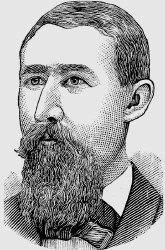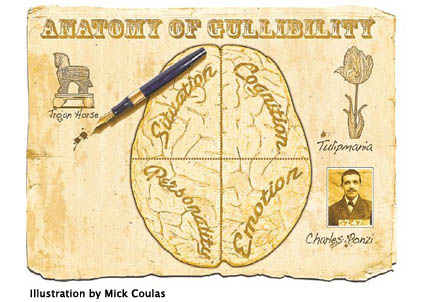Here’s the second installment of LiteratEye, a new series, only on The Art of the Prank Blog, by W.J. Elvin III, editor and publisher of FIONA: Mysteries & Curiosities of Literary Fraud & Folly and the LitFraud blog.
LiteratEye #2: Author Keven McQueen Recalls A Master Prankster of Yesteryear
By W.J. Elvin III
February 20, 2009
 It is quite possible that the name “Joseph Mulhattan” does not set bells ringing and lights flashing in the minds of modern readers, even if those readers seriously appreciate pranks and hoaxes. Keven McQueen may correct that regrettable state of affairs one day, when he finalizes his book on one of the master pranksters in journalism history.
It is quite possible that the name “Joseph Mulhattan” does not set bells ringing and lights flashing in the minds of modern readers, even if those readers seriously appreciate pranks and hoaxes. Keven McQueen may correct that regrettable state of affairs one day, when he finalizes his book on one of the master pranksters in journalism history.
Mulhattan’s bizarre news articles – perhaps hundreds – were often swallowed whole by the press and public of his era. “Mulhattan convinced our ancestors that a lost race of Aztecs had lived in Kentucky, that a meteor had demolished a sizable portion of Texas, that trained monkeys were a threat to American labor and that two moons orbited the earth. The last two hoaxes even fooled some scientists,” McQueen told me, adding: “Some of his tall tales survive today in the form of what we now call urban legends.”
Mulhattan was a very successful traveling salesman by trade but it was his sensational “news” that secured a position in the national spotlight. According to McQueen, Mulhattan was as well known in his day as Mark Twain or Jules Verne. He convinced many readers that the bodies of George Washington and Abraham Lincoln were to be exhumed and put on display, viewable for a fee, in celebration of the Centennial in 1876. A story attributed to him about David Lang, a Kentuckian who disappeared in thin air before witnesses, still appears today as a “strange but true” report. His tale of trained monkeys replacing farm laborers provoked angry editorials and brought hate mail to the innocent farmer whom Mulhattan mischievously credited with the innovation. Continue reading “LiteratEye #2: Author Keven McQueen Recalls A Master Prankster of Yesteryear”

 Back in olden times, mankind found it useful to live by mottoes. A motto reduces the helpful lessons of life to three or four words, maybe two, as in the Boy Scout motto: Be Prepared. Or, apropos now: Look before you leap.
Back in olden times, mankind found it useful to live by mottoes. A motto reduces the helpful lessons of life to three or four words, maybe two, as in the Boy Scout motto: Be Prepared. Or, apropos now: Look before you leap.